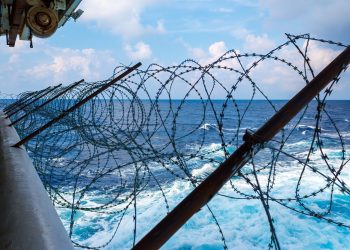A European consortium of maritime research and technology leaders launched the Fastwater project to demonstrate the feasibility of retrofit and newbuild vessels to operate on methanol as a pathway to fossil-free shipping.
Accordingly, Fastwater will focus on high impact outcomes, designing solutions for existing ships and designs for newbuildings, demonstrating methanol as a future-proof marine fuel to create a fast track to carbon-neutral shipping, the Port of Antwerp said.
The project will commercialise medium and high-speed methanol-fuelled engines for shipping. The leaders taking part will demonstrate feasibility on three vessels running on methanol fuel — a harbour tug, a pilot boat, and a coast guard vessel.
It is added that a conversion concept for a river cruise ship using methanol-driven propulsion will also be developed and a universal, scalable retrofit kit for converting diesel-fuelled ships to methanol use for a wide power range will be validated.
Moreover, the project will provide training programs for crew and portside staff, develop rules and regulations for methanol marine fuel use, demonstrate the complete value chain for bunkering methanol – including net carbon-neutral renewable methanol – elaborate a business plan, and identify CO2 and conventional pollutant reductions facilitated by the next-generation methanol propulsion systems.
Sebastian Verhelst, Professor at Lund University and Gent University and project manager commented that
The Fastwater consortium members bring a strong track record with methanol projects to this effort, which will address current bottlenecks that are hindering the use of methanol as a fuel for waterborne transport.
Some of the project partners are the Port of Antwerp, Swedish Maritime Administration, Meyer Werft, Lloyd’s Register, Lund University and Ghent University.






























































